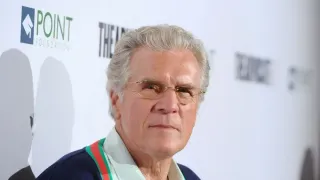October 25, 2015
Limerick Meeting Brings No Resolution to Gay Games Mess
Roger Brigham READ TIME: 4 MIN.
As I flew into Limerick, Ireland last week to represent Team San Francisco at the annual membership meeting of the Federation of Gay Games, I had the slimmest of hopes that decisive action would be taken to ensure the future of the Gay Games and a final resolution of talks to end the decade-long rivalry with the Gay and Lesbian International Sport Association's World Outgames.
Intense talks did not produce the resolution Team SF sought, but they did produce the promise of the continuation of the Gay Games.
There were other highlights of the annual meeting preceding the discussion of unified event negotiations. FGG, on a motion first introduced by Team SF, expanded its mission statement to include bisexual and transgender individuals. Although bisexual and transgender people are explicitly included in the federation's non-discrimination policy, the language in the mission statement in the bylaws just referred to gays and lesbians and was a legacy of an era when our community had not yet added B and T to its LG jargon.
FGG honored the people of Ireland for being the first electorate to approve marriage equality by national referendum - a progressive achievement the city's taxicab drivers seemed proud of when I spoke to them during my various explorations of Limerick. "I think we're pioneers," one told me in an oddly juxtapositional moment as we entered the Medieval remains of Limerick's past. "Ten years ago the idea of that would have been taboo. Now people just think it's right."
FGG also named three new honorary life members: the late Marc Naimark, who had served during the past decade as sports officer and vice president of external affairs; Paul White, who has worked in international development, communications and technology; and once and future San Francisco resident Kile Ozier, who produced the spectacular opening ceremonies for Gay Games IV and VII, commissioned the writing of the Gay Games musical theme, and helped me in 2004 by stage-managing the presentation of controversial bylaw changes that would lead to a fundamental restructuring of FGG itself.
"I am in tears," Ozier wrote me when I told him of his election. "I thought they had forgotten me."
Numerous other honors were conferred, past Gay Games trailblazers were remembered at an annual Memorial Moment observance, reports on the last Gay Games in Cleveland and the next Gay Games in Paris were presented, and two representatives from Limerick joined the FGG board - the first Irish natives ever elected to the body.
Team SF Motion
But the climax was a report on the status of talks with GLISA and a subsequent vote on a motion by Team SF that essentially would have ended the necessity for those talks and moved Gay Games site selection forward.
FGG negotiators reiterated that no decisions had been made on the 2022 event but that they remained committed to retaining the Gay Games name and mission. The next steps, they said, were a review of the board's legal responsibilities, especially as they pertain to partnership talks; evaluations of the worth of the FGG and GLISA brands and organizations; and a risk analysis of joint venture proposals.
The Team SF motion called for immediately moving forward with site selection for Gay Games XI and extending an invitation to GLISA to organize a separately funded human rights conference program as an external component of the Gay Games festival. The motion was designed to produce a resolution to talks that have commanded FGG resources in one form or another since 2005, allow both GLISA and the FGG to refocus on their core missions, open up a calendar spot for the EuroGames in non-Gay Games years (currently they are not held in the same year as the World Outgames, which occur the year before a Gay Games), and give the LGBT sports calendar the quadrennial "one world event" it enjoyed with the Gay Games from 1982 through 2002.
Dave Killian, FGG site selection officer, countered by saying that although currently the site selection team contains representatives from both GLISA and FGG, potential bidders receive materials that refer specifically to the event they are inquiring about as the Gay Games. He said he feared the Team SF motion would be too binding on a process that was already begun.
Joanie Evans, FGG co-president and a member of the negotiations team, said she thought the motion undermined ongoing talks.
A large block of delegates met the night before the vote to ask questions about the motion and to talk about the sports mission risks the Gay Games are running by leaving things up for negotiations. Many of them spoke in favor of the motion the next day. The delegate from Team Sydney reported that his membership poll found absolutely no organizational support for a unified event with conferences as part of the central budget.
In the end, a majority of the assembly voted against the Team SF motion. The board was given a vote of confidence to proceed with talks on a motion introduced by the delegates from Wrestlers WithOut Borders, in essence endorsing the memorandum of understanding the board had signed with GLISA earlier in the year.
The group that most undoubtedly wanted the motion to pass were the non-voting honorary life members who loved the Gay Games so much they had written them into their wills, but had removed FGG from their wills when the future of the games appeared to be in doubt because of the talks with GLISA. A couple of assembly members angrily protested that they would not allow their actions to be "held for ransom" and that money should not be a determining factor. It was an unkind and demeaning remark made against some of the event's longest and most loyal supporters. And it is a falsity: people demand ransom for things that have not yet happened; the folks who wrote the Gay Games out of their wills did so because of uncertainty caused by past board actions - not because of what the board may or may not do in the future.
What those loyalists want is certainty. What they were told is nothing is decided, take heart in that, and everyone wants the Gay Games. It is now the mandate of the board to make it so.






